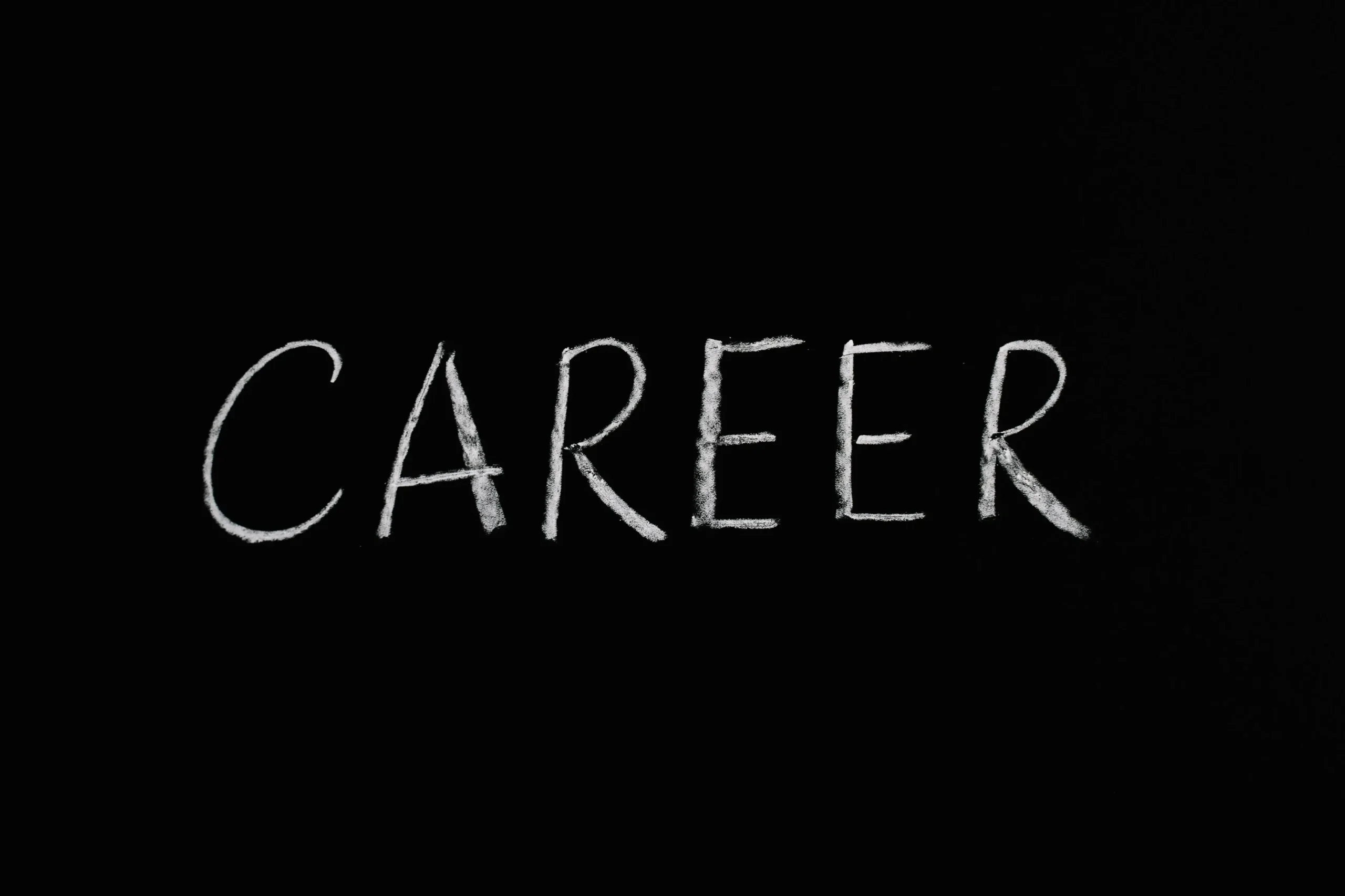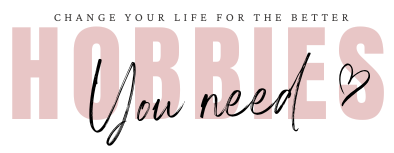The Top 20 Hard Employability Skills to Master

Imagine spending years honing your skills, only to find that job openings seem elusive. What’s the gap? The correct hard skills can turn a rejection into an offer. Employers today look for concrete skills, not just promises. A 2023 survey found 89% of hiring managers pass over candidates without essential technical skills.
This article reveals the 20 hard employability skills that open doors. These skills are buzzwords and keys to promotions and better pay. From coding to project management, the right skills can make your dreams a reality. Let’s explore what employers are looking for in 2024.
Table of Contents
Understanding Hard Employability Skills
Today, employers want candidates with both technical skills and people skills. Let’s explore what makes hard skills unique and why they’re essential for your career.
How Hard Skills Differ from Soft Skills
Hard skills are measurable abilities that you acquire through training or education. Examples include coding, using machines, or analysing data. These skills can be tested and proven. Soft skills, such as teamwork and adaptability, involve working with others and solving problems. Both are important, but serve different purposes in your career.
Why Hard Skills Are Essential in Today’s Job Market
With automation and new tech, employers need specialised knowledge. Jobs in AI, cloud computing, and more are growing fast. Without these skills, even great teamwork won’t get you into tech jobs. Certification in software or specific training shows you’re ready for today’s work.
How Hard Skills Complement Soft Skills
Think of a developer who codes well but can’t explain projects to clients. Their hard skills aren’t enough. But if they also have good communication skills, they become a strong candidate. Employers want people who can solve technical problems and work well with others.
Read also: Optimize Your Career Development Goals for Success
The 20 Hard Employability Skills Employers Value Most
Employers look for job skills that match today’s job market. Here’s a list of 20 key skills to help you focus on what to learn:
Technical Skills That Stand Out on Resumes
- Programming languages (Python, JavaScript)
- Data analysis tools (Excel, Tableau)
- Design software (Adobe Creative Suite)
- Cloud computing platforms (AWS, Azure)
- Database management (SQL, Oracle)
- Machine learning fundamentals
- 3D modeling and CAD software
Industry-Specific Hard Skills
Having specialised skills can make you stand out in specific fields:
- Accounting certifications (CPA, CMA) for finance
- Certified nursing assistant (CNA) skills in healthcare
- Manufacturing machinery operation
- Legal research and drafting software
- Retail inventory management systems
- Graphic design proficiency for marketing roles
Universal Hard Skills Valued Across Industries
These essential job skills make you more adaptable:
- Project management methodologies (Agile, Scrum)
- Digital literacy (email marketing, SEO basics)
- Financial analysis and budgeting
- Safety compliance certifications
- Technical writing for cross-functional teams
- Basic cybersecurity practices
These 20 skills are in high demand, according to the U.S. Bureau of Labor Statistics. Learning a few can boost your job search chances.
Digital Literacy and Technology Skills
Learning technical skills in tech and data is now a must. Employers want people who can use digital tools to solve problems and innovate. Let’s look at the main areas that are in high demand.
Programming and Coding Proficiency
Knowing how to code is a big plus. Start with easy languages like Python for automation or JavaScript for web sites. Sites like Codecademy and freeCodeCamp have suitable lessons for learning the basics. Employers like people who can:
- Write scripts to make work easier.
- Find and fix common coding mistakes
- Work on projects with GitHub
Data Analysis and Interpretation
Being good with data means turning numbers into helpful information. Important tools include:
| Tool | Purpose |
|---|---|
| Excel | Organising data |
| SQL | Querying databases |
| Tableau | Visualising data |
Knowing how to use these tools helps you find trends, improve processes, and share findings with others.
Software Expertise for Your Field
Software specific to your field shows your expertise. For example:
- Graphic designers: Adobe Photoshop
- Engineers: AutoCAD
- Marketing teams: HubSpot
It is worth spending time learning the top software in your field. Certification in tools like Salesforce or SAP can help you advance your career.
Financial and Analytical Skills
Financial and analytical skills are more than just working with spreadsheets. They are key to making wise decisions. Employers want people who can understand financial data to help the company grow. You can start by learning how to budget and forecast to meet your team’s goals.
Knowing how to read balance sheets and profit/loss statements. It helps you see trends and chances that others might not notice.

Tools like Excel, Tableau, or QuickBooks can turn data into useful information. For example, Excel’s pivot tables can make complex data easier to understand. Tableau’s visualisations help show trends clearly to everyone involved.
These skills improve your critical thinking. They make you ask important questions like: What does this data mean for the business? Would you happen to know how I can fix any problems?
- Cost-benefit analysis: Compare options to choose the most profitable path
- Risk assessment: Identify possible problems and plan how to avoid them
- Financial modeling: Try out different scenarios to see what might happen
“Numbers tell stories—your job is to translate them into strategies.”
Think about a marketing manager using data to change budgets for better results. Or a project leader checking risks to avoid delays. These jobs need problem-solving skills to manage costs, time, and resources.
Employers look for people who can understand data and suggest practical solutions, which helps the company meet its goals by analysing data.
Getting better at these skills makes you more trusted. You can take online courses in financial analysis or get certifications like Google Data Analytics. Whatever your job, analysing data and making quick decisions is very valuable.
Technical Communication and Documentation Skills
Practical communication skills are key in technical roles. They help write user manuals or present data to executives. Your clear communication is vital for project success. These transferable skills help share ideas across teams, clients, and industries.
Technical Writing for Different Audiences
Writing for engineers needs precision. However, explaining this to non-technical managers should be simple. Here are some tips:
- Use technical jargon only when your audience is familiar with it.
- Summarize key points for executives.
- Include step-by-step guides for end-users.
Creating Professional Documentation
Professional documentation must follow strict formats. It includes:
| Element | Description |
|---|---|
| Consistent Terminology | Avoid conflicting terms to prevent misunderstandings |
| Version Control | Track updates with clear revision histories |
| Accessibility | Use plain language and visual aids for diverse audiences |
Visual Communication of Technical Information
Visual tools make complex data easier to understand. Best practices include:
- Use flowcharts for process explanations.
- Highlight trends with charts and graphs.
- Map system architecture with diagrams.
Mastering these skills reduces errors and speeds up workflows. Clear technical communication is essential, whether writing a safety manual or presenting findings. It ensures that your expertise is valuable and actionable.
Project Management and Organizational Skills
Learning time management and professional skills is key in project management. These skills help you manage teams, meet deadlines, and deliver results. Employers look for these skills.
Project Planning and Execution
Good planning begins with picking the correct method. Use:
- Agile for flexible, iterative workflows
- Waterfall for linear, step-by-step projects
- Scrum for daily team coordination
Set clear goals, timelines, and milestones to prevent scope creep.
Resource Management
Managing resources well boosts efficiency. Organise:
| Resource Type | Examples | Key Considerations |
|---|---|---|
| Human | Team roles, staffing needs | Align skills with tasks |
| Material | Tools, equipment | Procurement timelines |
| Financial | Budgets, cost estimates | Avoid overspending |
Project Tracking and Reporting
Tools like Trello or Asana keep teams informed. Regular updates on progress and risks are key. Getting certifications like PMP or PRINCE2 shows your professional skills. These prove you can manage timelines and resources well.
These skills are valuable in any job, from marketing to engineering. They show you can handle deadlines and lead teams effectively.
Industry-Specific Technical Certifications Worth Pursuing
Employers in the U.S. want to see job readiness skills backed by credentials. Industry-specific certifications show your technical skills and make you stand out. Here’s how to pick certifications that matter:
| Industry | Certification | Cost | ROI |
|---|---|---|---|
| IT | CompTIA A+ (Networking/Hardware) | $300 | 15-20% salary increase |
| Healthcare | AHIMA Certified Coding Specialist | $400 | Access to specialised roles |
| Finance | CFA Level I | $1,000 | Average $120k+ salaries |
| Manufacturing | AWS Certified Solutions Architect | $300 | Cloud roles in demand |
Choose certifications with clear benefits. Talk to employers in your field to determine which ones are most valued. Fields like AI and cybersecurity (e.g., CISSP) often offer great returns. Look for certifications that:
- Match the jobs you’re aiming for
- Require 50-200 hours of study
- Have technical skills tests
Check the value of certifications on platforms like PayScale or by asking employers. Stay away from certifications that don’t get recognised by employers. They won’t help with job readiness skills. Update your certifications every 2-3 years to keep up with fast-changing fields.
Mathematical and Statistical Competencies
Math and stats are key for making wise choices in any job. They help us analyse data, spot trends, and tackle significant challenges. Whether managing budgets or predicting sales, knowing math and stats boosts your problem-solving and critical thinking.

Practical Mathematics for the Workplace
Every day, basic math is used in many jobs. You might figure out sales growth or check a company’s financial health. Here are some everyday math tasks:
- Percent change formulas for tracking KPIs
- Break-even analysis for cost management
- Profit margin calculations for pricing strategies
Statistical Analysis for Decision Making
Statistical tools help us make sense of data. Here’s how they work:
| Method | Description | Example Use Case |
|---|---|---|
| Regression Analysis | Identify variable relationships | Predict sales trends using historical data |
| Hypothesis Testing | Validate assumptions with data | Test if a new feature improves user engagement |
| Probability Analysis | Assess risks and outcomes | Evaluate inventory needs based on demand forecasts |
Quantitative Problem Solving
Good problem-solving follows a few steps:
- Define the problem clearly
- Select the correct formulas or models
- Analyze results and improve the solution
These steps help you think critically about challenging problems, ensuring your solutions are based on solid data and logic.
Machine Operation and Technical Equipment Skills
Working with machines and technical gear, things run smoothly and safely. Nowadays, knowing how to use automated systems is a must.
It is essential to be careful with tools and fix problems. Bosses want people who follow safety rules and keep equipment in good shape. Training often mixes learning in class with doing things by hand.
- Simulation software for virtual training
- Apprenticeships with certified technicians
- Hands-on repair workshops
“Automation changes these jobs—workers now set up robots instead of running machines by hand,” a 2023 Bureau of Labor Statistics report says. This change means learning to code, along with knowing how machines work.
Companies are willing to pay more for workers who know much about machines. Getting certified in things like CNC machining or robotics can increase your salary. Learning about new automation tools helps you stay ahead in the job world.
How to Develop Your Hard Employability Skills
Building employability skills requires a mix of learning methods. This section explains how to grow professional skills through education, self-study, and real-world practice.
“The only way to learn is to do.” —Paul R. Halmos.

Educational Pathways to Acquire Technical Skills
Formal programs give structured training. You can choose from:
- Community colleges for certifications in IT or healthcare
- Online degree programs from places like edX or Coursera
- Vocational schools for trades like welding or coding
Self-Learning Resources and Platforms
Online tools let you learn at your speed. Try:
- Coursera’s IT support or data analysis courses
- YouTube tutorials on software like Adobe Creative Suite
- LinkedIn Learning for industry-specific training
Practical Experience and Skill Application
Apply skills through:
- Internships at companies like Microsoft or local startups
- Volunteer tech projects for nonprofits
- Mentorships with professionals in your field
Using these methods helps you master skills employers want. You can start small and track your progress often.
Showcasing Hard Skills on Your Resume and Portfolio
Highlighting your hard skills can help you get ready for a job. Start by grouping your skills into categories like technical tools, software, or certifications. Use bullet points to list your skills.
For example, saying “Proficient in Python scripting for data analysis (3+ years)” shows your skills without using too much jargon.
- Quantify achievements: “Increased sales by 20% using Salesforce CRM tools.”
- Match job descriptions: Prioritize skills from the job posting in your resume’s skills section.
- Avoid vague terms: Replace “excellent communication” with “Authored 50+ technical reports for cross-department collaboration.”
“The best resumes don’t just list skills—they tell stories of impact.” – LinkedIn Talent Solutions
Portfolios should show off your skills through projects. Include links to GitHub repositories, case studies, or client testimonials. For instance, a marketing portfolio might show A/B testing results with Google Analytics data.
Use tools like Canva or Adobe Spark to make your portfolio look good.
Please don’t —instead, use your skills. Instead, could you pair certifications (like Google Data Analytics Certificate) with examples of how you used them? Tailor your resume for each job—show coding skills for tech jobs, and ERP systems for logistics roles.
Use templates from Microsoft Word or Canva’s professional resume builder. Always check for typos and ensure keywords like “data visualisation” or “project management” fit your field.
How Companies Assess Your Hard Skills During Interviews
and top job skills. Knowing how they work helps you get ready.
Common Technical Assessments in Hiring Processes
| Assessment Type | Description | Preparation Tips |
|---|---|---|
| Skills Simulations | Real-world tasks like coding challenges or data analysis exercises | Practice platform-based drills (e.g., HackerRank, LeetCode) |
| Case Studies | Scenario-based problem-solving exercises | Review industry case studies and document your decision-making process |
| Portfolio Reviews | Analysis of work samples or project portfolios | Curate 3-5 standout projects with quantifiable outcomes |
Demonstrating Your Technical Proficiency
Employers want to see proof of your skills. Here’s how to show it:
- Prepare 2-minute project summaries highlighting technical challenges and solutions
- Use analogies to explain complex concepts to non-technical stakeholders
- Anticipate “what-if” questions by preparing contingency plans for past projects
“Candidates who show curiosity about evolving industry standards often outperform those relying solely on existing certifications.” – Tech Recruiter, Microsoft
Addressing Skill Gaps During Interviews
If you’re missing a skill, highlight what you can do:
- Frame gaps as growth opportunities: “I’m currently upskilling in [specific tool] through [certification/platform]”
- Showcase complementary skills: “My experience in [related skill] provides foundational understanding”
Companies value being able to adapt. Show you can learn and solve problems.
Conclusion: Leveraging Hard Skills for Career Advancement
Mastering the 20 hard employability skills is key in today’s fast-paced job market. These skills, from coding to data analysis, help tackle real-world challenges. Learning platforms like Coursera or LinkedIn Learning offer certifications in areas like cloud computing or AI tools.
But skills alone aren’t enough. Adding soft skills like communication or teamwork makes you more versatile. For instance, a data analyst skilled in Python who can present findings stands out. Employers in the U.S. job market look for candidates who combine hard and soft skills.
Stay adaptable. Trends like automation and AI require new skills. Updating your skills through online courses or workshops keeps you relevant. Certifications in tools like Microsoft Project or Salesforce CRM show your expertise.
What’s next? Find gaps in your skills and focus on growth areas. Use resources like the U.S. Bureau of Labor Statistics to find in-demand fields. Aligning your training with market needs can lead to promotions and higher pay. The job market changes, and so must your skills.
FAQ
What are hard employability skills?
Hard employability skills are specific skills you can learn and measure. Examples include technical skills and knowledge of particular industries. Employers value these skills as much as soft skills.
How do hard skills differ from soft skills?
Hard skills are technical, like programming or data analysis. Soft skills are about interacting with others, like communication or teamwork. Both are important for success in your career.
Why are hard skills necessary in today’s job market?
The job market is getting more specialised and tech-savvy. Hard skills are key for getting hired. They show you can do the job well, which can lead to better pay.
What are some examples of in-demand hard employability skills?
Skills like programming languages (Python, JavaScript), data tools (Excel, SQL), and project management (Agile, Scrum) are in demand. Also, industry-specific certifications show you’re an expert.
How can I develop my hard employability skills?
You can learn complex skills through school, online courses (Coursera, LinkedIn Learning), or by doing internships. You can find learning methods that work for you.
How should I showcase my hard skills on my resume?
List your hard skills clearly on your resume. Use specific examples to show you’re good at them. Make sure to match your skills to the job you’re applying for.
What types of assessments can I expect during technical interviews?
Employers might test your skills with coding tests, case studies, or portfolio reviews. Practice these tasks and be ready to talk about your skills.
Are there certifications that can enhance my employability skills?
Yes, getting certifications like PMP or CompTIA A+ can boost your skills. They show you’re serious about your field and have specialised knowledge.
How can soft skills complement my hard skills?
Soft skills like communication and teamwork make your hard skills more effective. They help you work better with others and achieve more.
What is the role of digital literacy in employability skills?
Digital literacy is key today. You can use technology well for tasks like data analysis and online work. It helps you do your job better and adapt to new situations.



One Comment